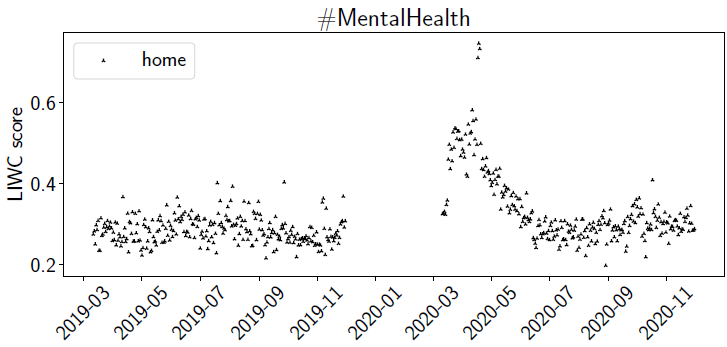The COVID-19 pandemic not only affected the respiratory system, but, together with measures like social distancing, potentially affected the mental health of millions of people. What do Twitter (X) users talk about when they talk about #MentalHealth and #Depression? Did it change through the pandemic?
We collected almost 3,000,000 tweets from more than 300,000 Twitter users tweeting about #MentalHealth and #Depression. We applied a combination of (1) sentiment analysis, (2) topic modeling, and (3) machine-learning-based tweet classification to gain more insights.
Results:
- Sentiment libraries LIWC, NRC, and VADER revealed overall positive sentiment in tweets about #MentalHealth
- Topic modeling approach LDA (Latent Dirichlet Allocation) revealed that users primarily tweet to raise awareness
- #MentalHealth tweets during the pandemic often showed an expression of gratitude
- We build three machine learning models to see to what extent we can classify a tweet belonging to either before or during the pandemic. The BERT classifier performed the best and we achieved an accuracy of 81% for #MentalHealth and 79% for #Depression
You can find our full article published in Healthcare here (PDF).


